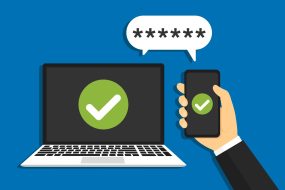
Welcome to our comprehensive guide on computer security, where we explore the intricate realm of protecting your digital world from threats and vulnerabilities. In today’s interconnected landscape, where technology drives innovation and connectivity, ensuring the security of your computer systems is of paramount importance. In this guide, we delve into the depths of computer security, unveiling the strategies, tools, and best practices necessary to safeguard your data and privacy. Let’s embark on this enlightening journey together!
Introduction
In an era dominated by technological advancements, our reliance on computers and electronic devices is ever-increasing. From personal computers to smartphones, we store vast amounts of sensitive information, including personal data, financial records, and intellectual property. The rise of cybercrime and the constant evolution of malicious attacks necessitate a proactive and comprehensive approach to computer security.
The Crucial Elements of Computer Security
Strong Passwords: Your First Line of Defense
One of the fundamental pillars of computer security is the use of strong and unique passwords. It is imperative to choose passwords that are complex, incorporating a combination of uppercase and lowercase letters, numbers, and special characters. Avoid common phrases, predictable patterns, and easily guessable information such as birthdays or names. Regularly updating your passwords and employing password managers can further enhance your security.
Secure Software Updates: Patching Vulnerabilities
Software vulnerabilities pose significant risks to your computer security. Hackers exploit these weaknesses to gain unauthorized access or launch malicious attacks. To mitigate these risks, ensure that all software applications, including the operating system, web browsers, and installed programs, are regularly updated with the latest security patches and bug fixes. Enable automatic updates whenever possible to stay protected against emerging threats.
Robust Antivirus and Anti-Malware Solutions
Installing reliable antivirus and anti-malware software is crucial for defending against a wide range of cyber threats, including viruses, worms, Trojans, spyware, and ransomware. Choose reputable security solutions from trusted vendors and keep them up to date. Regularly scan your system for malware and schedule automated scans to proactively identify and eliminate potential threats.
Firewall Protection: Shielding Your Network
A firewall acts as a barrier between your computer or network and the vast expanse of the internet. It monitors incoming and outgoing network traffic, filtering and blocking potentially harmful data packets. Ensure that your operating system’s built-in firewall is enabled, or consider using a dedicated hardware or software firewall solution for enhanced protection. Customize firewall settings to allow only necessary connections and restrict unauthorized access.
Data Encryption: Safeguarding Your Confidential Information
Data encryption plays a pivotal role in preserving the confidentiality and integrity of your sensitive information. Encrypting data at rest and in transit ensures that even if intercepted, the data remains unintelligible to unauthorized individuals. Utilize encryption tools and protocols such as SSL/TLS for securing website communications, and consider implementing full-disk encryption on your devices to protect stored data from unauthorized access.
Frequently Asked Questions (FAQs)
What are the most common types of cyber threats?
Cyber threats come in various forms, each with its unique characteristics and potential impact. Common types of cyber threats include malware infections, phishing attacks, ransomware, social engineering, denial-of-service (DoS) attacks, and data breaches.
How can I protect my computer from phishing attacks?
To protect against phishing attacks, exercise caution when clicking on links or downloading attachments in emails, even if they appear legitimate. Verify the sender’s identity and pay attention to misspellings or suspicious email addresses. Additionally, ensure that your web browser and email client have built-in anti-phishing capabilities enabled.
What should I do if my computer is infected with malware?
If you suspect that your computer is infected with malware, take immediate action. Disconnect from the internet, isolate the affected device from your network, and run a thorough scan using your antivirus software. Follow the recommended steps for malware removal provided by your security software, and consider seeking professional assistance if needed.
How often should I back up my data?
Regular data backups are essential to mitigate the potential impact of data loss due to hardware failures, malware infections, or other unforeseen events. It is advisable to perform automated backups on a frequent basis, depending on the volume and criticality of your data. Consider utilizing both local and off-site backup solutions for added redundancy.
Is it necessary to educate employees about computer security?
Employee awareness and education are integral to maintaining a secure computing environment within organizations. Conduct regular training sessions to educate employees about best practices, security policies, and the identification of potential threats. Encourage strong password management, caution against suspicious emails or links, and emphasize the importance of reporting any security incidents promptly.
Top Selling Category: Advanced Security Solutions
In the realm of computer security, numerous advanced solutions are available to fortify your defenses and ensure optimal protection. Here are some top-selling categories of advanced security solutions:
1. Next-Generation Antivirus (NGAV): NGAV solutions employ advanced algorithms and machine learning techniques to detect and block sophisticated malware and zero-day threats that traditional antivirus software might miss.
2. Intrusion Detection and Prevention Systems (IDPS): IDPS solutions monitor network traffic in real time, identifying and mitigating suspicious activities and potential intrusions, thus safeguarding your network infrastructure.
3. Security Information and Event Management (SIEM): SIEM solutions provide centralized monitoring and analysis of security events, aggregating data from various sources to detect and respond to security incidents proactively.
4. Endpoint Detection and Response (EDR): EDR solutions focus on endpoint protection, leveraging behavior-based analytics and machine learning to detect and respond to advanced threats targeting individual devices.
5. Web Application Firewalls (WAF): WAF solutions protect web applications from attacks, filtering and monitoring incoming and outgoing web traffic to detect and block malicious activities.
Top Selling Products: Cutting-Edge Security Tools
In the dynamic landscape of computer security, staying ahead of emerging threats requires access to cutting-edge security tools. Here are some top-selling products renowned for their advanced features and effectiveness:
1. 360 Total Security: A comprehensive security suite that combines antivirus, anti-malware, and real-time threat detection with additional features like web protection, system optimization, and privacy tools.
2. Bitdefender Total Security: Known for its robust malware detection capabilities, Bitdefender Total Security offers multi-layered protection, secure online banking, password management, and advanced parental controls.
3. Norton 360:** Norton 360 provides an all-in-one security solution that encompasses antivirus, firewall, VPN, identity theft protection, secure cloud storage, and webcam privacy.
4. Kaspersky Internet Security: Kaspersky Internet Security offers a wide range of features, including antivirus, anti-phishing, firewall, webcam protection, secure online banking, and parental controls.
5. Avast Premium Security: Avast Premium Security offers powerful antivirus protection, advanced ransomware detection, real-time threat intelligence, Wi-Fi network security, and secure password management.
Conclusion
In an increasingly digital landscape, computer security is a paramount concern for individuals and organizations alike. By implementing a robust security framework encompassing strong passwords, software updates, antivirus solutions, firewalls, and data encryption, you can fortify your defenses against a multitude of threats.
Stay vigilant, stay informed, and adapt to the ever-evolving cybersecurity landscape to protect your digital world effectively. Remember, proactive measures and diligent adherence to best practices are the keys to a secure and resilient computing environment.






